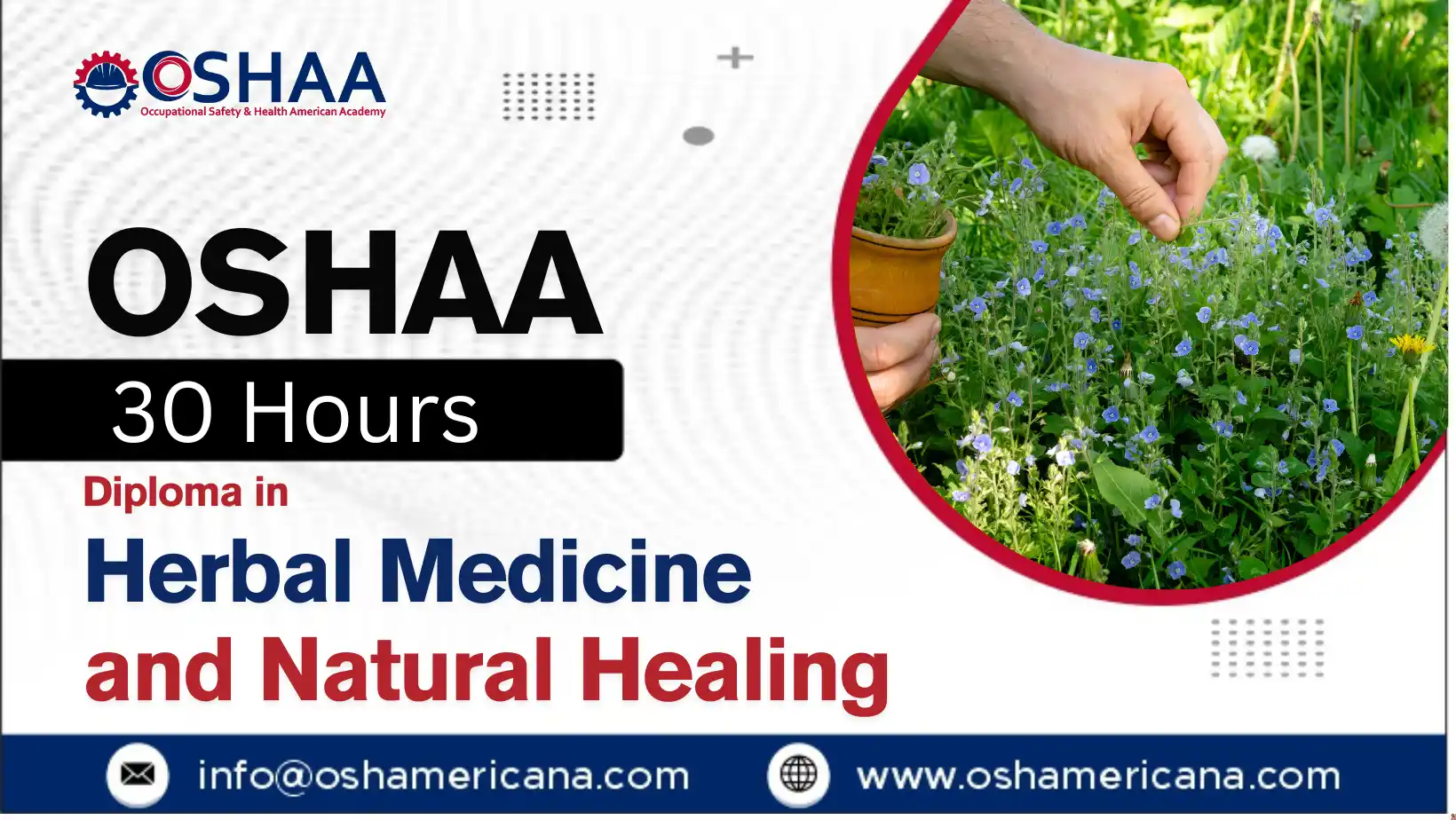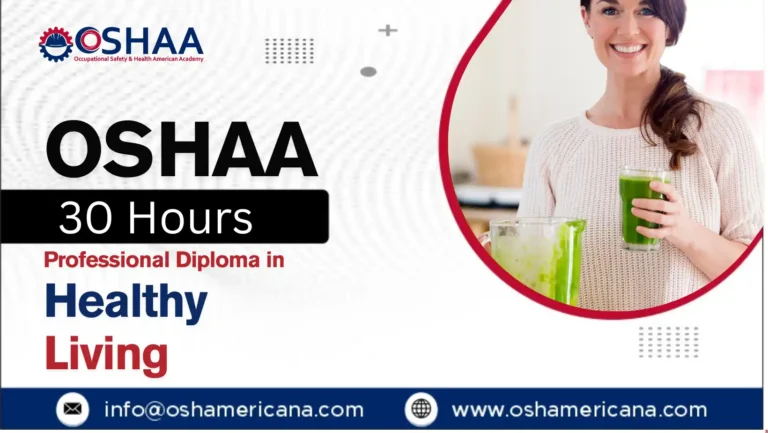The OSHAA 30-Hours Diploma in Herbal Medicine and Natural Healing is a professionally designed Continuing Professional Development (CPD) course that introduces participants to the therapeutic use of plants and traditional remedies for supporting health and wellbeing. With growing global interest in holistic and integrative approaches, this diploma provides a structured and evidence-informed foundation in the principles and practices of herbal medicine.
Participants will explore the historical significance, modern applications, and responsible usage of herbal remedies across a wide range of health contexts. Whether used as complementary therapy or wellness support, the course enables participants to make informed decisions about the safe and effective use of natural healing techniques within their scope of practice.
Natural remedies and plant-based treatments have long been a part of traditional health systems across cultures. Today, herbal medicine is being revisited by health professionals and wellness advocates for its potential to support balance, resilience and recovery. This diploma is ideal for those seeking to understand the science behind herbal applications while remaining grounded in professional ethics, quality control and safety.
Participants will develop a practical understanding of how herbal preparations can support physical, emotional and digestive health, as well as how to recognise contraindications and assess product quality.
The OSHAA 30-Hours Diploma in Herbal Medicine and Natural Healing offers a thoughtful and professionally guided entry point into the world of traditional plant-based care. Designed with safety, ethics and scientific understanding in mind, it empowers participants to support wellbeing through natural methods while remaining within their professional boundaries.
OSHAA 30-Hours Diploma in Herbal Medicine and Natural Healing
Study Units
Learning Outcomes
Foundations of Herbal Medicine and Traditional Healing Systems (3 hours)
- Understand the principles and origins of herbal medicine across global traditions
- Identify the role of herbal practices in traditional and complementary health systems
- Recognise how cultural beliefs influence natural healing approaches
- Establish a foundational framework for safe and respectful herbal practice
Botanical Constituents and Plant-Based Pharmacology (4 hours)
- Identify the active constituents found in medicinal plants
- Understand how different plant compounds affect human physiology
- Learn the basic pharmacological actions of common herbal constituents
- Relate plant chemistry to therapeutic outcomes in herbal applications
Herbal Applications for the Immune, Digestive, and Nervous Systems (4 hours)
- Explore key herbs used to support immune, digestive, and nervous system function
- Understand the actions and indications of herbs relevant to each body system
- Apply knowledge of herbs to common non-clinical health concerns
- Develop awareness of dosage forms and safety profiles
Methods of Herbal Preparation: Infusions, Tinctures, Salves and Oils (4 hours)
- Learn traditional and modern methods of preparing herbal remedies
- Understand the appropriate use of water-, alcohol- and oil-based extractions
- Develop practical knowledge of storing and preserving herbal preparations
- Recognise how preparation method influences potency and application
Safety, Contraindications, and Herb-Drug Interactions (3 hours)
- Understand common safety concerns in herbal practice
- Identify herbs with known contraindications or toxic potential
- Learn how herbal products may interact with pharmaceutical medications
- Apply risk-reduction strategies in non-clinical use
Herbal Use for Stress Management, Sleep and Emotional Wellbeing (5 hours)
- Identify herbs traditionally used to support mental and emotional balance
- Understand adaptogenic and nervine actions of specific plants
- Explore non-invasive approaches for supporting sleep and stress response
- Integrate herbal strategies into holistic self-care routines
Cultural and Historical Contexts of Herbal Practices (2 hours)
- Recognise the historical use of herbs across cultures and civilisations
- Understand the legacy and evolution of plant-based healing systems
- Appreciate the diversity and relevance of indigenous herbal knowledge
- Reflect on ethical engagement with traditional medicine practices
Sustainable Harvesting, Ethical Sourcing and Quality Assurance (5 hours)
- Understand principles of ethical wildcrafting and sustainable harvesting
- Identify criteria for evaluating the quality and authenticity of herbal products
- Learn about fair trade and ecological impacts in herbal supply chains
- Support responsible sourcing practices within personal and professional use
Course Benefits: OSHAA 30-Hours Diploma in Herbal Medicine and Natural Healing
- CPD-Certified Qualification
Earn a recognised 30-hour Continuing Professional Development diploma, adding professional credibility to your holistic or wellness-based practice. - Comprehensive Introduction to Herbal Medicine
Gain a strong foundation in the principles of herbal therapy, including the safe use of traditional remedies and the understanding of plant-based pharmacology. - Practical Skills in Herbal Preparation
Learn hands-on techniques to create herbal infusions, tinctures, oils and salves, supporting everyday health using natural methods. - Improved Awareness of Safety and Interactions
Understand how to use herbs responsibly by identifying contraindications and recognising herb-drug interactions, essential for maintaining safety in complementary practice. - Support for Emotional and Physical Wellbeing
Explore how herbal remedies can aid stress relief, sleep quality and overall emotional balance through non-invasive, natural methods. - Informed Approach to Sustainability
Develop ethical awareness around the sourcing, harvesting and ecological impact of herbal products, promoting responsible use in both personal and professional contexts. - Cultural and Historical Understanding
Gain insight into the global heritage of herbal medicine, helping to foster respect for diverse healing traditions and practices. - Holistic Lifestyle Integration
Learn how to incorporate herbal knowledge into daily routines, wellness programmes and client education in non-clinical settings. - Professional Growth and Portfolio Development
Strengthen your CPD record with a specialised diploma that aligns with modern wellness, community health and natural therapy frameworks. - Flexible Learning Format
Study at your own pace with structured content designed for working professionals, carers, and those in allied or complementary health fields.
The OSHAA 30-Hours Diploma in Herbal Medicine and Natural Healing is ideal for participants seeking to expand their knowledge of plant-based therapies within a professional, ethical, and safety-focused framework. This course is particularly suited to:
- Wellness practitioners, holistic health coaches, and natural therapy advisors
- Carers and healthcare support workers interested in non-pharmaceutical approaches
- Allied health professionals looking to integrate herbal awareness into client support
- Individuals involved in community health, lifestyle education, or wellbeing promotion
- Participants working in rehabilitation, mental health support, or integrative care settings
- Those with a personal or professional interest in herbal healing and sustainability
This course supports participants in developing the practical skills and theoretical understanding needed to apply herbal knowledge responsibly within their scope of practice, without diagnosing or prescribing. It is designed to complement existing roles in health, care, and wellbeing.







